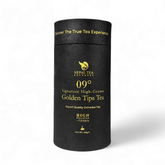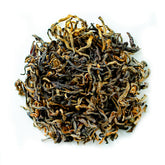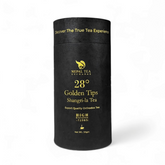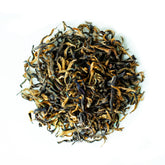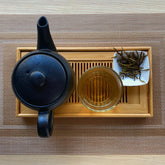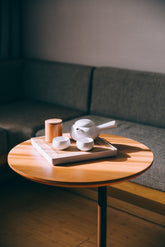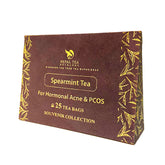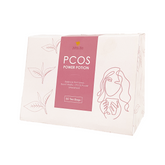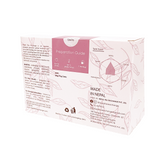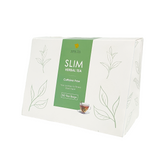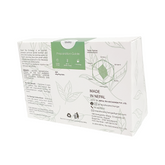Understanding the Science Behind Caffeine in Tea
Tea is a popular beverage that is enjoyed all over the world for its taste and calming effects and mostly gaining popularity as Nepal tea. However, did you know that tea also contains caffeine, a natural stimulant that can have both positive and negative effects on the body? In this article, we will explore the different types of tea, their caffeine content, and how caffeine can affect the body.
Introduction
Caffeine is a natural stimulant found in the leaves, seeds, and fruits of various plants, including tea leaves. In tea, caffeine is one of the primary compounds responsible for its stimulating effects on the human body. . However, tea also contains caffeine, which can have a range of effects on the body.
Caffeine acts by blocking binding of adenosine to the adenosine A1 receptor, which enhances release of the neurotransmitter acetylcholine.[15] Caffeine has a three-dimensional structure similar to that of adenosine, which allows it to bind and block its receptors.[16] Caffeine also increases cyclic AMP levels through nonselective inhibition of phosphodiesterase.[17]
Caffeine is a stimulant, which means it increases activity in our brain and nervous system. It also increases the circulation of chemicals such as cortisol and adrenaline in the body.
In small doses, caffeine can make you feel refreshed and focused. In large doses, caffeine can make you feel anxious and have difficulty sleeping.
Like many other drugs, it’s possible to develop a tolerance to caffeine, which means you need bigger and bigger doses to achieve the same effect.
Types of Tea and Caffeine Content
Not all teas are created equal when it comes to caffeine content. Here are some of the most popular types of tea and their caffeine content:
Black Tea
Black tea is known for its robust flavor and high caffeine content, with some varieties containing as much as 60 milligrams of caffeine per cup. The amount of caffeine in black tea can vary depending on how it is brewed.
Green Tea
Green tea is a milder option, with an average of 30 milligrams of caffeine per cup. While it contains less caffeine than black tea, it still provides a boost of energy and alertness.
Oolong Tea
Oolong tea falls somewhere between black and green tea in terms of caffeine content, with an average of 40 milligrams per cup.
White Tea
White tea generally contains less caffeine than black tea but more than herbal teas. The amount of caffeine in white tea can vary depending on factors such as the specific variety of tea and how it is brewed. On average, white tea contains around 15-30 milligrams of caffeine per cup, which is lower than black tea but higher than most herbal teas.
Herbal Tea
Herbal teas such as chamomile and peppermint do not contain any caffeine at all, making them a great option for those who want to avoid caffeine altogether.
The caffeine content in tea can also vary depending on how it is brewed. Longer steeping times and higher temperatures can result in a higher caffeine content, while shorter steeping times and lower temperatures can lead to a lower caffeine content.
In Summary :
- Black Tea: 40 to 70 milligrams
- Green Tea: 20 to 45 milligrams
- White Tea: 15 to 30 milligrams
- Oolong Tea: 30 to 50 milligrams
Effects of Caffeine on the Body
While caffeine is often associated with negative effects such as jitters and insomnia, it can also have some positive effects on the body when consumed in moderation.
Increases Alertness and Concentration
Caffeine is a natural stimulant that can help to increase alertness and concentration. This is why many people reach for a cup of coffee or tea in the morning to help them start their day.
Improves Athletic Performance
Caffeine can also improve athletic performance by increasing endurance and reducing fatigue. This is why caffeine is often included in sports drinks and energy gels.
Enhances Mood
Caffeine can also enhance mood by increasing the production of dopamine and serotonin in the brain, which are neurotransmitters that are responsible for feelings of happiness and well-being.
However, it is important to be mindful of your caffeine intake, as consuming too much caffeine can lead to negative effects such as anxiety, heart palpitations, and disrupted sleep. As with any food or beverage, moderation is key when it comes to consuming tea and caffeine.
Conclusion
Tea is a popular and beloved beverage enjoyed by people of Nepal and all around the world. The caffeine content in tea can vary depending on the type of tea and how it is brewed, and it is important to be mindful of your caffeine intake to avoid negative side effects. However, when consumed in moderation, caffeine can provide a range of benefits such as increased alertness, improved athletic performance, and enhanced mood. So go ahead and enjoy a cup of tea, but remember to practice moderation for a balanced and healthy lifestyle.
FAQs about Tea and Caffeine
Q1: Can tea help with weight loss?
A1: While there is no magic drink that will help you lose weight, some studies suggest that green tea may help to boost metabolism and promote fat burning.
Q2: Can drinking tea cause dehydration?
A2: No, drinking tea does not cause dehydration. In fact, tea can help to keep you hydrated, especially if you are drinking herbal teas that do not contain any caffeine.
Q3: Is it safe to drink tea during pregnancy?
A3: It is generally safe to drink tea during pregnancy, but it is important to be mindful of your caffeine intake to avoid negative side effects.
Q4: How much caffeine is in a cup of tea?
A4: The caffeine content in tea can vary depending on the type of tea and how it is brewed. Black tea typically contains the most caffeine, with an average of 60 milligrams per cup, while green tea contains around 30 milligrams per cup. Herbal teas do not contain any caffeine at all.
Q5: Is it safe to drink tea with caffeine?
A5: Yes, it is safe to drink tea with caffeine in moderation. However, it is important to be mindful of your caffeine intake and not consume too much, as this can lead to negative effects such as anxiety and disrupted sleep.
Q6: Can caffeine in tea improve athletic performance?
A6: Yes, caffeine can improve athletic performance by increasing endurance and reducing fatigue. This is why caffeine is often included in sports drinks and energy gels.
Q7: Does caffeine in tea have any negative effects on the body?
A7: Consuming too much caffeine can lead to negative effects such as anxiety, heart palpitations, and disrupted sleep. It is important to consume tea with caffeine in moderation.
Q8: Do all types of tea contain caffeine?
A8: No, not all types of tea contain caffeine. Herbal teas such as chamomile and peppermint do not contain any caffeine at all.


